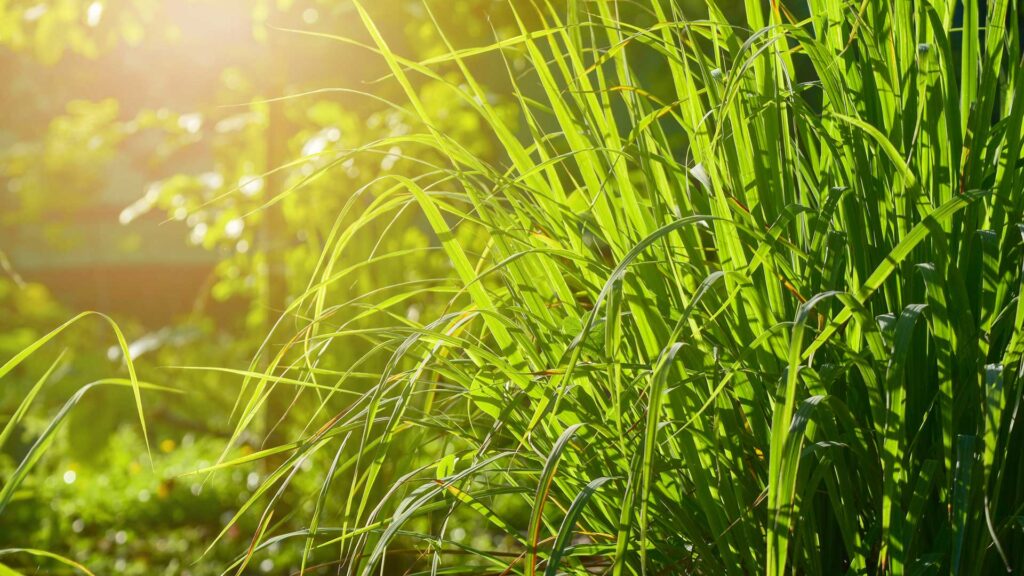What are some plants that repel mosquitoes?
Yes, ants can cause structural damage, particularly carpenter ants, which are known for their ability to excavate wood to create their nests. Unlike termites, carpenter ants do not eat wood but remove it to expand their living areas, potentially weakening the structural integrity of buildings over time. While not all ant species pose a threat to structures, identifying and addressing a carpenter ant infestation early is crucial to prevent significant damage. Homeowners should watch for signs like sawdust-like shavings and large, winged ants, which indicate the presence of these wood-damaging pests.

- The Science Behind Plant-Based Repellents: A Deeper Dive
- A Closer Look at Mosquito-Repelling Plants
- Expanding the Green Arsenal: Effective Placement and Care of Mosquito-Repelling Plants
- Beyond the Garden: A Holistic Approach to Mosquito Control
- The Broader Impact
- Frequently Asked Questions About Plants That Repel Mosquitoes
Certain plants are known to naturally repel mosquitoes, offering an eco-friendly solution for homeowners. These include Citronella Grass, known for its mosquito-repelling aroma; Lavender, which deters mosquitoes with its soothing scent; Marigold, containing pyrethrum used in insect repellents; Basil, emitting a mosquito-displeasing aroma; and Catnip, found to be more effective than some commercial repellents. Incorporating these plants into home gardens and outdoor spaces can help reduce mosquito presence, enhancing both comfort and health.
In the perennial battle against mosquitoes, homeowners are increasingly turning to a solution as old as nature itself: plants. These natural allies offer more than just aesthetic enhancement to our gardens and homes; they serve as a frontline defense in the fight against these persistent pests. Mosquitoes, known not just for their irritating bites but also as carriers of diseases like malaria, dengue, and Zika virus, pose a significant threat to home safety and human health. In this context, the use of plants as a natural deterrent is not just a matter of convenience, but a crucial aspect of health and well-being.
The effectiveness of these plants against mosquitoes isn’t based on folklore or anecdote, but is grounded in scientific research. Certain plants are endowed with unique properties – specifically, the ability to produce volatile oils and compounds that are unpalatable to mosquitoes. These natural repellents work by masking the scents that typically attract mosquitoes, such as the carbon dioxide and lactic acid emitted by humans. This botanical shield not only reduces the presence of mosquitoes but does so in a way that is harmonious with the environment, avoiding the need for harsh chemical repellents.
The interest in plant-based mosquito repellents also reflects a broader trend towards eco-friendly and sustainable living. As awareness of the environmental impact of conventional insecticides grows, homeowners are seeking solutions that align with a more natural lifestyle. This shift is not just about individual health and comfort; it represents a collective move towards practices that respect and preserve our ecological balance.
In this article, we delve into the specifics of these mosquito-repelling plants, exploring how they work, which varieties are most effective, and how they can be integrated into our homes and gardens. We also examine the broader implications of this approach, considering how embracing nature’s solutions can contribute to a healthier, more sustainable way of living. As we navigate the challenges of creating safe and comfortable living spaces, the humble yet powerful mosquito-repelling plant stands out as a testament to the synergy between human ingenuity and the natural world.
Comparative Overview of Mosquito-Repelling Plants
| Plant Name | Key Repelling Compound(s) | Ideal Planting Conditions | Placement Tips | Additional Benefits |
|---|---|---|---|---|
| Citronella Grass | Citronellol, Geraniol | Full sun, well-drained soil | Around patios, walkways | Used in repellent candles and oils |
| Lavender | Linalool, Camphor | Sunny, well-drained areas | Near entryways, windows | Soothing scent, used in aromatherapy |
| Marigold | Pyrethrum | Full sun, fertile soil | Borders, near doors/windows | Bright blooms, used in insecticides |
| Basil | Estragole, Linalool | Rich, moist, well-drained soil | Near water features, kitchen gardens | Culinary uses, toxic to mosquito larvae |
| Catnip | Nepetalactone | Well-drained soil, full to partial sun | Gardens, pots (with caution) | More effective than DEET, attracts cats |
| Lemon Balm | Citronellal | Well-drained soil, partial shade | Containers, near seating areas | Can be used as a natural skin repellent |
| Peppermint | Menthol, Menthone | Moist, shaded areas | Containers, garden borders | Repels various pests, culinary uses |
The Science Behind Plant-Based Repellents: A Deeper Dive
The effectiveness of plant-based mosquito repellents is rooted in the intricate interplay of botanical chemistry and insect biology. Understanding this science not only enlightens homeowners but also guides them in making informed choices for their health and home environments.
The Role of Volatile Oils in Repelling Mosquitoes
At the heart of plant-based repellents are volatile oils, naturally occurring compounds that plants produce. These oils serve as the plant’s defense mechanism against herbivores and insects. When it comes to repelling mosquitoes, these oils emit strong scents and chemical compounds that are unappealing or disorienting to these pests.
Masking Human Scents: Mosquitoes are attracted to certain human odors, primarily carbon dioxide and lactic acid. The strong fragrances of plants like citronella and lavender mask these attractants, making it harder for mosquitoes to locate their human targets.
Chemical Compounds: Plants such as marigolds contain pyrethrum, a natural insecticide. This compound affects the nervous system of mosquitoes, deterring them from the area. Similarly, the nepetalactone in catnip is found to be a powerful mosquito repellent, even more effective than some synthetic options.
Scientific studies have played a crucial role in understanding how these plants repel mosquitoes. For instance, research published in the Journal of Agricultural and Food Chemistry found that certain essential oils could repel mosquitoes effectively. Another study highlighted that nepetalactone, the essential oil in catnip, is up to ten times more effective than DEET in repelling mosquitoes.
While the efficacy of these plants is evident, it’s important to note that their effectiveness can vary based on several factors:
- Concentration of Essential Oils: The repellent properties of a plant are directly linked to the concentration of its essential oils. This concentration can vary depending on the plant’s growing conditions and the time of harvest.
- Volatility of Oils: These oils are volatile, meaning they evaporate quickly. This limits the duration of their effectiveness and requires frequent reapplication or maintenance when used in a garden setting.
- Species-Specific Efficacy: Not all mosquito species react the same way to these repellents. While some plants may be effective against certain species, they may not work as well against others.
Understanding the science behind these natural repellents empowers homeowners to use them more effectively. By combining these plants with other mosquito control methods and considering factors like plant placement and maintenance, homeowners can create a more comprehensive and natural mosquito defense system.
The science behind plant-based mosquito repellents is a fascinating blend of botany and entomology. It offers a natural, environmentally friendly approach to mosquito control, aligning with the growing global emphasis on sustainable living practices. As research in this field continues to evolve, it holds the promise of more innovative and effective solutions in the fight against mosquitoes.
A Closer Look at Mosquito-Repelling Plants
In the battle against mosquitoes, nature offers a variety of plants that serve as effective repellents. Each of these plants possesses unique properties that make them unappealing to mosquitoes, offering homeowners a natural way to enhance their living spaces while keeping these pests at bay.
Quick Guide to Mosquito-Repelling Plants
- Citronella Grass
Ideal Placement: Outdoor gardens, patios
Care Tips: Full sun, well-drained soil - Lavender
Ideal Placement: Windowsills, near entrances
Care Tips: Full sun, occasional watering - Marigold
Ideal Placement: Borders, near vegetable gardens
Care Tips: Full to partial sun, moderate watering - Basil
Ideal Placement: Kitchen windows, balconies
Care Tips: Full sun, regular watering - Catnip
Ideal Placement: Pots, dispersed in the garden
Care Tips: Full to partial sun, well-drained soil
Citronella Grass
Citronella Grass, scientifically known as Cymbopogon nardus, is perhaps the most well-known mosquito-repelling plant. The secret to its effectiveness lies in its strong, lemony scent, which masks other attractants to mosquitoes. This plant is often used in the production of mosquito repellent candles and oils. For optimal effectiveness, citronella grass should be planted in large clumps around patios or along walkways where people gather, as its scent is most potent when the leaves are disturbed.
Lavender
Lavender, with its calming and pleasant fragrance, is not just a favorite among humans but also a deterrent to mosquitoes. The plant contains essential oils that are released when the leaves are brushed against or when the plant is in bloom. These oils, particularly linalool and camphor, are effective in repelling mosquitoes. Lavender thrives in sunny, well-drained areas and can be planted in gardens or in pots to place near entryways and windows.
Plants like lavender and citronella work by masking scents that attract mosquitoes. It’s a natural and aesthetic way to reduce mosquito presence.
Marigold
Marigolds are not only visually appealing with their bright orange and yellow blooms, but they also contain pyrethrum, an ingredient found in many insect repellents. This compound is known for its insecticidal and repellent properties. Marigolds work well when planted in borders or in containers near entry points to the home, such as doors and windows, to help keep mosquitoes away.
Basil
Basil, a popular herb in cooking, is also effective against mosquitoes. The plant emits a pungent scent that mosquitoes find particularly offensive. The essential oils in basil, especially estragole and linalool, are toxic to mosquito larvae, making basil an excellent choice for planting near water features or in damp areas of the garden where mosquitoes might breed.
Catnip
Surprisingly, catnip, known for its effects on cats, is also a potent mosquito repellent. A study by Iowa State University found that the essential oil in catnip, nepetalactone, is up to ten times more effective than DEET. Catnip is easy to grow and can be planted in gardens or in pots. However, it can be invasive and may attract cats, so placement should be considered carefully.
Lemon Balm
Lemon balm, a member of the mint family, is another effective mosquito repellent. It contains high levels of citronellal, which gives it a lemony scent and makes it unattractive to mosquitoes. Lemon balm can be invasive, so it’s best planted in containers. Crushing the leaves and rubbing them on the skin can also act as a natural skin repellent.
Peppermint
Peppermint, with its strong scent, is not only disliked by mosquitoes but also has the added benefit of repelling other pests like spiders and ants. The plant’s oils can be extracted and used as a natural repellent. Additionally, peppermint has the added advantage of being a useful herb in the kitchen.
Incorporating these plants into the landscape not only adds beauty and fragrance but also serves as a natural and environmentally friendly way to deter mosquitoes. While they are not a complete solution on their own, when combined with other mosquito prevention methods, they can significantly reduce mosquito presence, enhancing outdoor comfort and safety.
Expanding the Green Arsenal: Effective Placement and Care of Mosquito-Repelling Plants
Incorporating mosquito-repelling plants into your home requires more than just planting them in your garden. Strategic placement is crucial for maximizing their effectiveness. Potted plants, for instance, can be placed near entryways, windows, and outdoor living areas, acting as a natural barrier against mosquitoes. This not only enhances the aesthetic appeal of these spaces but also leverages the plants’ repellent properties where they are most needed. For indoor use, consider placing these plants in sunlit areas like window sills, ensuring they receive enough light while contributing to indoor air quality and providing a natural shield against mosquitoes.
Caring for these plants is equally important to ensure they continue to produce the essential oils that repel mosquitoes. Regular watering, appropriate sunlight, and proper soil conditions are fundamental. For instance, lavender thrives in well-drained soil and full sun, while basil prefers moist, nutrient-rich soil. Pruning and harvesting can also stimulate the production of the volatile oils that make these plants effective against mosquitoes. For example, regularly trimming basil and lavender can encourage fuller, healthier growth and increase the release of their aromatic oils. By understanding and catering to the specific needs of each plant, homeowners can enhance their mosquito-repelling efficacy and enjoy a greener, more pleasant living environment.
Beyond the Garden: A Holistic Approach to Mosquito Control
While integrating mosquito-repelling plants into your garden is a significant step, a comprehensive strategy is essential for effective mosquito control. This holistic approach combines environmental management, personal protection, and community awareness to create a multi-layered defense against these pests.
Environmental Management
- Eliminate Standing Water: Mosquitoes breed in stagnant water. Regularly check and empty items like bird baths, plant saucers, and rain barrels. Ensure gutters are clean and draining properly.
- Landscaping Practices: Keep your lawn trimmed and bushes pruned. Mosquitoes thrive in dense vegetation, so maintaining a tidy yard reduces their breeding grounds.
- Use of Mosquito Nets and Screens: Installing screens on windows and doors is a simple yet effective barrier. For outdoor sleeping or dining areas, mosquito nets provide added protection.
- Lighting Choices: Mosquitoes are less attracted to LED and yellow-toned lights. Consider these options for outdoor lighting to reduce their presence.
Personal Protection
- Appropriate Clothing: When outdoors, especially during dusk and dawn when mosquitoes are most active, wear long-sleeved shirts and pants. Light-colored clothing is less attractive to mosquitoes.
- Skin-Based Repellents: For added protection, use EPA-approved skin repellents containing DEET, picaridin, or oil of lemon eucalyptus. Natural alternatives like citronella or eucalyptus oil can also be effective.
- Avoid Peak Mosquito Hours: Limit outdoor activities during early morning and evening hours, when mosquitoes are most active.
Community Awareness and Action
- Public Health Campaigns: Local health departments often run campaigns to educate the public about mosquito-borne diseases and prevention strategies. Participation in these initiatives can be crucial.
- Neighborhood Clean-Up Drives: Organizing community clean-ups to remove debris and standing water can significantly reduce local mosquito populations.
- Reporting and Monitoring: Reporting high mosquito activity or potential breeding sites to local authorities helps in targeted control efforts.
Integrating Technology and Innovation
- Mosquito Traps and Zappers: Utilizing traps and zappers in strategic locations can help reduce the mosquito population around your home.
- Smart Home Solutions: Some smart home devices now offer mosquito repellent features, integrating seamlessly into home automation systems.
- Biological Control: Introducing natural predators like dragonflies or using bacterial insecticides like Bacillus thuringiensis israelensis (Bti) can be an environmentally friendly control method.
Educating yourself and your community about mosquito behavior, breeding habits, and disease transmission is crucial. Knowledge empowers individuals to take proactive steps in mosquito control, contributing to a safer and healthier living environment.
A holistic approach to mosquito control involves a combination of personal protection, environmental management, community involvement, and the integration of technology. By adopting these practices, homeowners can significantly reduce the presence of mosquitoes and the risks associated with them, ensuring a safer and more comfortable living environment.
The Broader Impact
The use of plants as mosquito repellents aligns with a growing preference for natural, environmentally friendly solutions. It’s a small step towards a healthier home and a testament to the power of nature in everyday life.
The integration of mosquito-repelling plants into our homes and gardens represents more than just a natural defense against pests; it signifies a shift towards a more harmonious and sustainable way of living. These plants, with their dual roles of beautifying our spaces and protecting our health, embody a perfect blend of form and function.
This approach aligns with a broader trend of eco-conscious living, where choices at home reflect a commitment to environmental stewardship. By choosing natural repellents over chemical ones, homeowners are not only safeguarding their families but also reducing their ecological footprint. It’s a proactive step in fostering biodiversity and preserving the delicate balance of our ecosystems.
Moreover, this practice taps into the age-old wisdom of using plants for their medicinal and protective properties, a tradition that spans cultures and centuries. In a world where technology often dominates, turning to nature for solutions fosters a deeper connection with the environment and a greater appreciation for its capabilities.
The use of these plants also encourages community and education. Neighbors sharing cuttings or tips on plant care creates a sense of community. Families engaging in gardening can educate younger generations about the importance of nature and sustainability. This communal aspect can lead to broader discussions on environmental issues and collective actions towards greener living.
Finally, the adoption of plants as a natural repellent is a testament to the power of informed choice and innovation in everyday life. It shows that small, individual actions can contribute to larger environmental and health goals. As we continue to explore and embrace nature’s offerings, we pave the way for a future where our homes are not just places of refuge but also bastions of health, sustainability, and harmony with the natural world.
Frequently Asked Questions About Plants That Repel Mosquitoes
How do plants repel mosquitoes?
Certain plants produce volatile oils and compounds that mosquitoes find unappealing. These scents mask the human odors that typically attract mosquitoes, such as carbon dioxide and lactic acid.
Can these plants completely eliminate mosquitoes in my home?
While these plants can significantly reduce the presence of mosquitoes, they don’t completely eliminate them. It’s best to use them in conjunction with other mosquito-control methods.
What are some of the most effective mosquito-repelling plants?
Citronella grass, lavender, marigold, basil, and catnip are among the most effective. Each has unique properties that deter mosquitoes.
Is it better to use these plants indoors or outdoors?
These plants can be effective both indoors and outdoors. For indoor use, potted plants near windows and doors are ideal. Outdoors, plant them in gardens or near seating areas.
How should I care for these mosquito-repelling plants?
Regular watering, adequate sunlight, and proper soil conditions are essential. Trimming the plants can also help release more of the mosquito-repelling oils.
Are there any safety concerns with these plants?
Generally, these plants are safe. However, if you have pets, be cautious with plants like catnip. Always research individual plant safety for your specific household.
Can I use these plants in addition to other mosquito repellents?
Absolutely. These plants are a natural complement to other repellents, such as sprays or electronic mosquito traps.
Do these plants work against other types of insects?
Yes, many of these plants also repel other insects like flies and ants. Their broad-spectrum repellent nature makes them a versatile choice for pest control.
How quickly do these plants start repelling mosquitoes?
The effect is fairly immediate once the plants are mature and producing their scents. However, it’s a gradual process that improves as the plants grow.
Can I use the oils from these plants as a natural mosquito repellent?
Yes, oils extracted from these plants, like citronella and lavender, can be applied to the skin or used in diffusers for added mosquito repellent effects. However, ensure they are properly diluted and skin-safe before application.




